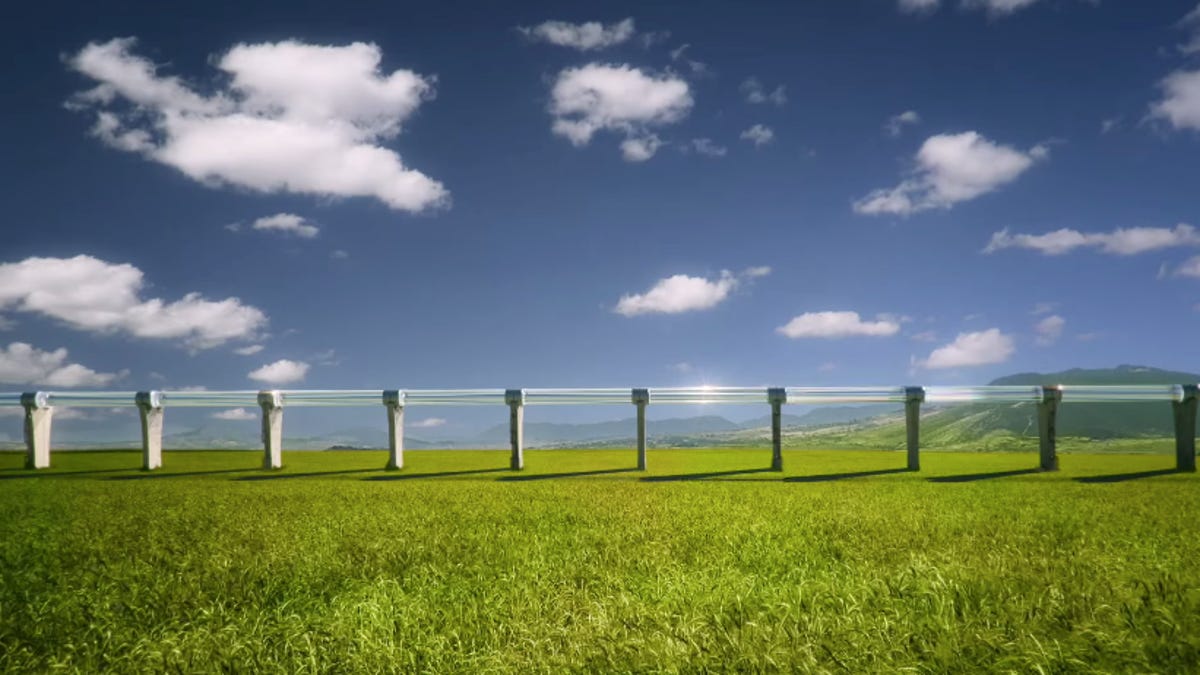Elon Musk wants hyperloop pod to hit half the speed of sound
The man of many projects wants to speed his transport concept up to half-Mach then hit the brakes. The result should be one heck of a high-speed stress test.

CEO Elon Musk is interested in spurring development of the Hyperloop concept he open-sourced over 4 years ago.
Nearly half a decade after he open-sourced his Hyperloop white paper and handed off the high-speed transport concept to the crowd, Elon Musk just can't help dabbling in the technology himself. The Tesla Motors and SpaceX CEO says he's going to try pushing a new pod design to half of the speed of sound and then slamming on the brakes.
In a Saturday night tweet, Musk said an upgraded SpaceX/Tesla pod would be sped up to half of Mach 1, which is the speed of sound or about 767 mph (1,235 km/h), and then stopped, all within about three quarters of a mile (1.2 kilometers).
That's like laying down a track that's about as long as four or five Manhattan city blocks and accelerating a vehicle down it until it reaches about 380 mph (612 km/h), then hoping you can slow it back down to a complete stop before it hits the end of the track.
Upgraded SpaceX/Tesla Hyperloop pod speed test soon. Will try to reach half speed of sound (and brake) within ~1.2km.
— Elon Musk (@elonmusk) April 8, 2018
"This is kinda nutty for such a short distance," Musk acknowledged in another tweet. "So could easily end up being shredded metal, but exciting either way."
This seems to be a cornerstone of Musk's philosophy lately: You might as well push the limits because it tends to produce spectacular results, no matter whether they're deemed successes of failures. He had almost the exact same attitude toward the virgin launch of the SpaceX Falcon Heavy rocket, which was a success but could have also resulted in a massive explosion.
Tesla and SpaceX, along with another Musk venture, The Boring Company, all seem to be contributing some resources to the Hyperloop side project. A pair of startups, the Richard Branson-led Virgin Hyperloop One and Hyperloop Transportation Technologies, have been leading the charge in getting the technology off the ground, but Musk has also been developing it himself.
He's apparently floated Hyperloop as an option for transport between central Chicago and O'Hare Airport and been in talks to bring route to Los Angeles and the northeastern seaboard of the US as well.
Progress for Hyperloop technology has been accelerating gradually, with Virgin Hyperloop One claiming to have run a full-scale pod test at speeds of 240 mph (386 km/h).
Exactly when Musk will try to up the ante with his next daring test is uncertain, with the polymath entrepreneur only says it's coming "soon."
Crowd Control: A crowdsourced science fiction novel written by CNET readers.
Solving for XX: The tech industry seeks to overcome outdated ideas about "women in tech."

